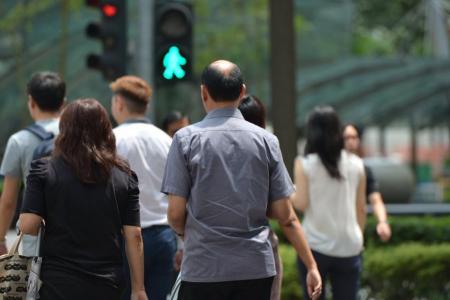Tapping on inactive PMETs
Scheme to match out-of-work mothers and professionals with companies offering paid job trials on pilot run
Mothers and professionals who take a break from the workforce can look forward to getting more help to restart their careers.
The National Trades Union Congress (NTUC) is trying out what it calls a Returners Programme to match economically inactive professionals, managers, executives and technicians (PMETs) with companies offering paid job trials.
These trials will lead to a permanent position if both parties agree, labour MP Desmond Choo said in a Facebook post yesterday, calling on employers to join the initiative.
The out-of-work PMETs are a "latent talent pool" who may have years of experience from their former careers, he said.
"Additionally, they have also gained newfound perspectives and strengths - such as resourcefulness, resilience and heightened multi-tasking abilities - during the time they spent on personal commitments," he said.
Mr Choo, NTUC's spokesman on women and family matters, added that employers may need support to implement workplace practices and schemes to attract and retain the new hires.
SUPPORT
He said he hopes the Manpower Ministry, which NTUC is in discussions with, will give funding support to employers who offer permanent positions to those who successfully complete the job trials.
Second Minister for Manpower Josephine Teo also voiced support for the programme on Facebook, saying her ministry is looking into supporting companies that offer job-sharing opportunities.
The Straits Times understands that NTUC's U Family unit has been approaching employers for the pilot run of the scheme since early this year, after the labour movement mooted the idea in its recommendations for this year's Budget.
It also holds networking sessions for PMETs and potential employers.
NTUC did not provide the number of PMETs and employers involved in the pilot run.
In her post, Mrs Teo listed some of the feedback gathered at a focus group discussion she attended with 12 parents on Wednesday evening.
Most parents who stayed home were keen to return to work when their children were older, and those who were professionals recognised that they needed to brush up on their skills.
FLEXIBLE
Both men and women also hoped that employers would offer some form of flexible work arrangement when they returned to work.
The ministry also plans to launch tripartite standards on flexible work arrangements to help jobseekers identify good employers with progressive practices.
"We hope to drum up companies' support for working parents and make inclusive workplaces a norm in Singapore," said Mrs Teo, who invited the public to give their views.
Parenting blogger Liang May, 35, a stay-at-home mum who used to work in the hotel industry, hopes "returnships" will help her in future.
She hopes to rejoin the corporate world when her two children, now aged three and five, are in upper primary, but she worries that her age then and long period out of the industry may hamper her chances.
She said of the scheme: "It gives the employers an incentive to see how much we can add value, and gives me a chance to prove myself."
Get The New Paper on your phone with the free TNP app. Download from the Apple App Store or Google Play Store now


